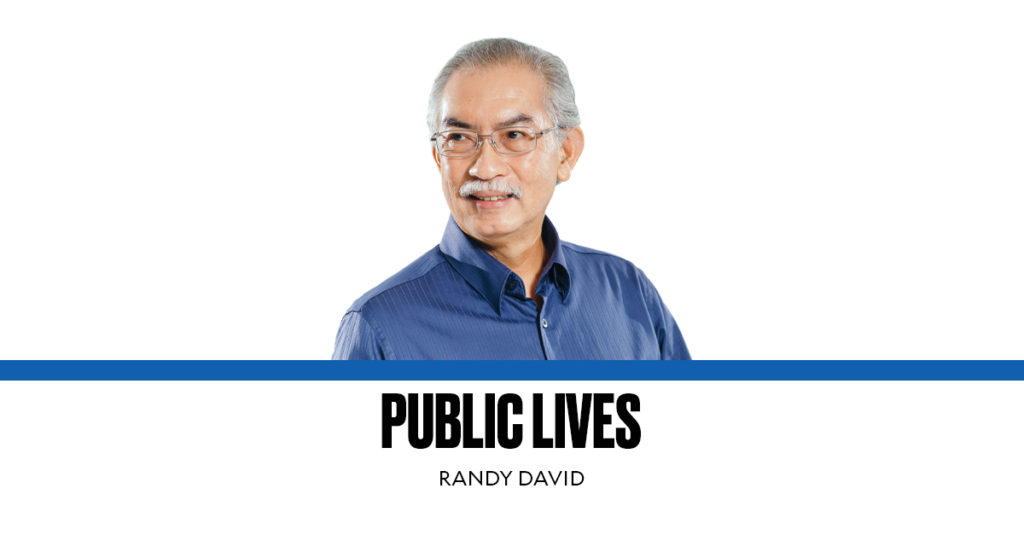Sociologists who study modern society like to predict that the family — that realm of interpersonal intimacy — will have a diminishing role in the determination of an individual’s life. As societal functions become differentiated, they expect kinship to become increasingly irrelevant in politics, religion, business, the occupational system, etc.
The end result of this modernizing process is thought to be that the family will become the exclusive domain of love and intimacy, where members are valued for what they are rather than what they can bring to the family’s economic, political, or social standing.
This is not what seems to be happening in our own society. We appear to be undergoing some form of retrogression. In contrast to those years when we were just starting to learn the rules of democratic practice, Filipino politicians today appear shameless in their assertion of family affiliation to advance their careers. Indeed, what we are seeing is nothing less than the ostentatious display of kinship as a political brand in itself.
Thus, we have husband-and-wife, parent-and-child, and siblings being elected or aspiring to sit together in the same Congress. We have spouses, or parents and children, alternating with one another as occupants of the same local government post. Lately, we have been seeing members of the same family simultaneously occupy the positions of governor and vice governor, or mayor and vice mayor, without a hint of shame.
Delicadeza, the ethic of restraint that antedated the promulgation of formal laws banning political dynasties, has clearly lost whatever force it once had in our culture. It is not a small irony that the repeated failure by Congress to pass a law operationalizing the 1987 Constitution’s provision on political dynasties has emboldened political families to go full blast in their bid to monopolize the political terrain.
This situation has made a mockery of term limits, the explicit rationale for which is to widen the field of recruitment to public service. But looking more broadly at the way things are unfolding, perhaps there’s a deeper and less understood reason for these novel provisions in the 1987 Constitution. It has to do, I believe, with the need to prevent the use of political power as an instrument to protect and advance the economic interests of a few.
This, to me, is the more important basis for the insistence that the spirit behind term limits and the constitutional ban on political dynasties be upheld and reiterated. It is the same justification for the urgent need to reform the party list system — to ensure it does not become just another tool in the hands of narrow economic interests.
Not too long ago, it was uncommon to see politicians and members of their families engage in highly regulated businesses. And vice versa, though they might support particular politicians, business tycoons did not themselves run for public office or “own” political parties. This role differentiation is understandable in a society that consciously aspires to be modern and democratic. Businesses have an interest in being able to operate smoothly under any political environment. And political leaders maintain their distance from business interests in order to better serve the needs of a broader constituency.
But something happened after Marcos declared martial law in 1972. He dismantled the existing constitution, padlocked Congress, undermined the judiciary, and inaugurated a regime that did away with elections, political parties, and all forms of political contestation. The ostensible purpose of this dictatorial move was to “unite” all sectors of society behind the common purpose of building a “New Society” under the direction of technocrats who would treat questions of public policy as nothing but technical problems to be solved.
The result of this disastrous experiment in repressive developmentalism was to give the military a taste of political power, politicize business, and raise a generation of Filipinos that devalued politics and political parties and the role of a free press and a critical academe.
The democratic wave that toppled the Marcos dictatorship in 1986 theoretically carried with it the possibility of building something new, rather than merely restoring the pre-ML political order. In the ensuing contest for political control, however, the mass organizations could not consolidate their influence as quickly as the old and the emerging elites. New centers of political and economic power arose in the regions, initially riding on the Cory Aquino magic, but quietly establishing their own political bases. These became the seeds of today’s political dynasties, the functional equivalent of yesterday’s political parties.
Far from constituting a purely political class, these political families are at the same time very much engaged in diverse businesses. They have economic fortunes to protect and promote, and some of them have illegal wealth to launder through legitimate enterprises. Political power confers on them a decisive advantage over their competitors: quick access to government permits, franchises, advanced information on government projects, and sheer political clout.
Today, one finds most of these political dynasties converging around the putative frontrunner in the 2022 presidential election, Ferdinand “Bongbong” Marcos Jr., whose billboards in the provinces stand unchallenged on the huge properties of his dynastic allies.
public.lives@gmail.com
RELATED STORY
What’s wrong with political dynasties?
